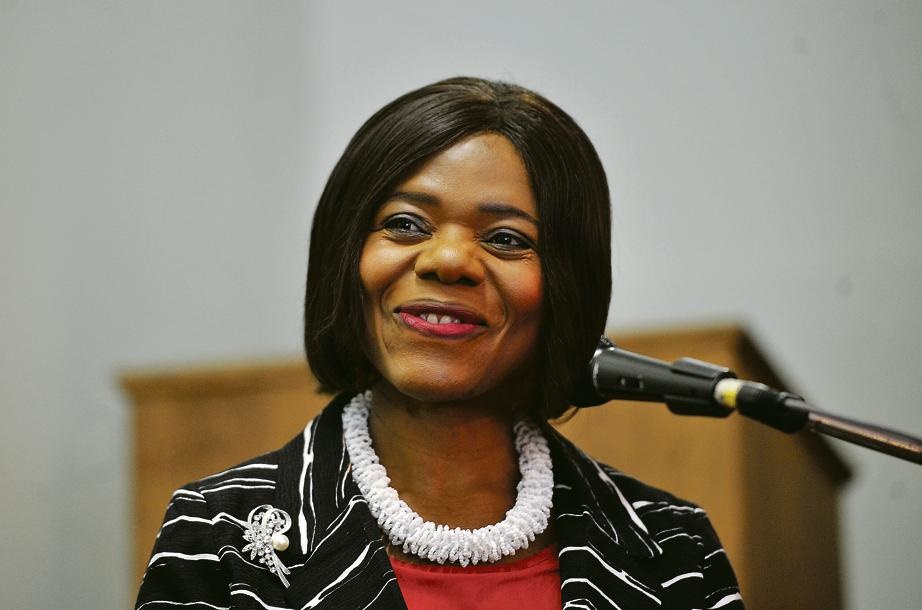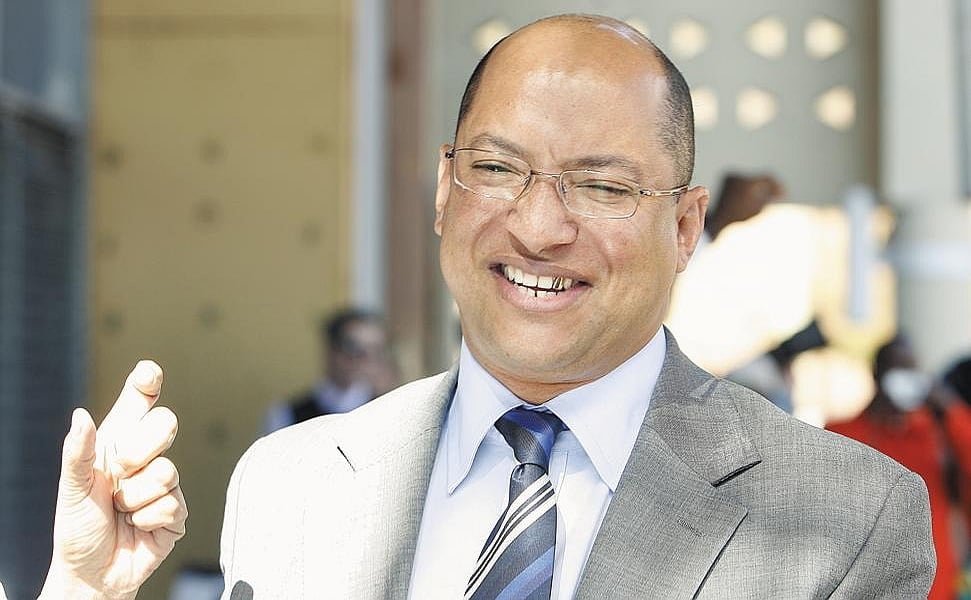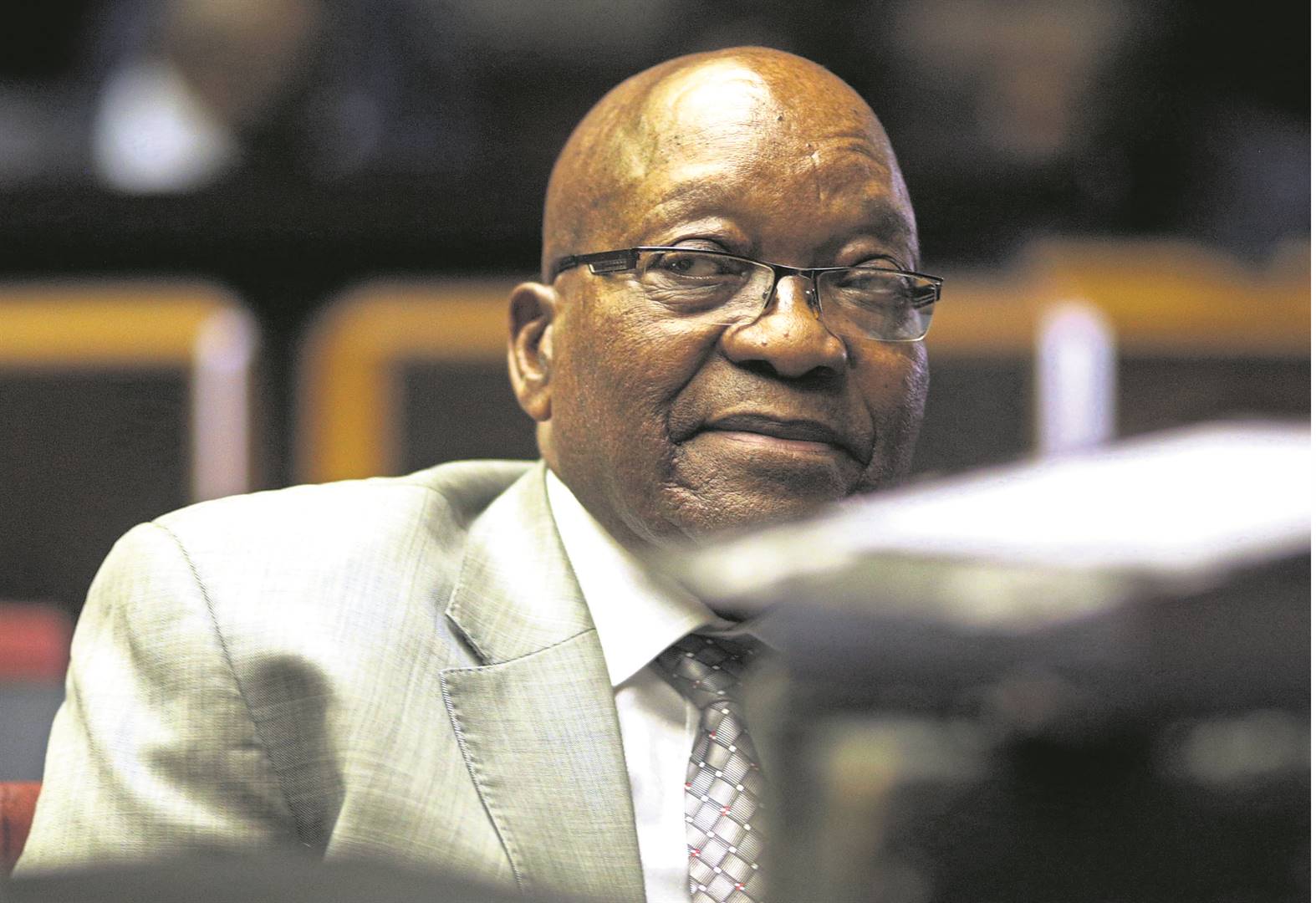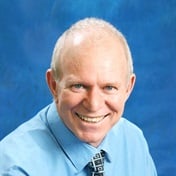
“So really, I would request…I’m willing to answer, but I would request some time to look at the matters that had been given to me and also get advice, legal advice.” – Jacob Zuma, when he was president, to then public protector Thuli Madonsela on October 6, 2016.
“All I’m asking is for honest answers. Those answers can’t change with legal advice, they can’t. The president will tell me the honest fact of why he removed Mr. Nene and why he appointed Mr. Van Rooyen. Sir, why do you need a lawyer to advise you because the lawyers advised you then, before you did that?” – Madonsela to Zuma, during the same meeting.
It’s an ambush, is procedurally unfair and the matter is being rushed. That was Jacob Zuma’s defence in 2016 when Thuli Madonsela tried to question him about state capture. And he got away with it. Deputy Chief Justice Raymond Zondo must take note, writes Pieter du Toit.
Thuli Madonsela never used to raise her voice when she was Public Protector and she never became visibly angry. At press conferences she often spoke so measured and softly that journalists strained to hear what she was saying.
But on the morning of October 6, 2016, during a meeting with then president Jacob Zuma, she started fraying at the edges. Madonsela had been granted the meeting with the head of state at the very last minute, days away from the conclusion of her tenure and the start of Busisiwe Mkhwebane’s term as Public Protector.
And now Zuma was silent, being chaperoned and shielded by loyal and longtime lawyer Michael Hulley. Zuma was sitting across from Madonsela, as per the agreement, but he wasn’t going to divulge anything while Hulley was busy throwing every conceivable administrative and procedural roadblock he could find in front of Madonsela.
She had been investigating allegations of state capture since March, when three complaints were laid at her office connected to the revelations by Mcebisi Jonas, who was deputy minister of finance at the time, that he was offered the position of finance minister by the Gupta family, Zuma’s benefactors and associates. A couple of months before Jonas’s bombshell, Zuma dumped finance minister Nhlanhla Nene and replaced him with an unknown backbencher, Des van Rooyen, who promptly rocked up at National Treasury with advisors linked to the Guptas.
The good governance and integrity unit at the Public Protector’s office started investigating the matter and shortly after the complaints were laid notified Zuma’s office of the implications for him. Madonsela wanted to interview him as part of the investigation.
But Zuma simply deployed his tried and tested legal strategy: resist, counter, obfuscate and bob and weave. For months the Presidency and Public Protector exchanged letters, establishing a framework for the interview, aligning diaries and thrashing out relevance and jurisdiction.
And by the time Madonsela and her colleague, Nkebe Kanyane, arrived at the Union Buildings for the long-promised interview she was about to leave office. To be replaced by Mkhwebane.
Madonsela, opening proceedings, went into great detail explaining the history of the matter, the context and the legal framework within which the president was being interviewed. But Hulley was unruffled. His client may be the kingpin in the network of patronage and corruption that metastasised during his term of office, but he was not about to be subjected to Madonsela’s questioning.
“We intend to demonstrate that the inquiry or the interview, in terms of Section 7(9) of the Public Protector Act, is premature and we would like to demonstrate to you why it is that we make that submission,” Hulley said according to the transcript of the meeting.
“And in these circumstances it renders such a meeting procedurally unfair in a way that doesn’t speak to the import of how these matters ought to be conducted.”
While Madonsela and Hulley sparred about process and procedure, Zuma sat quietly, safe in the knowledge that he won’t be asked about any issues of substance.
***
There is much anticipation ahead of Zuma’s appearance at the judicial commission of inquiry into state capture chaired by Deputy Chief Justice Raymond Zondo in a couple of weeks’ time. Many believe it will be the first real opportunity to exact some form of accountability from a man who in his absence has been omnipresent in the commission’s proceedings since the very first day it sat in August last year.
He was a central figure in the marquee testimonies of witnesses such as Pravin Gordhan (a former finance miniser), Nhlanhla Nene (another former finance minister), Barbara Hogan (a former public enterprises minister) and Lungisa Fuzile (a former director general of National Treasury). His acolytes and appointees have been the main actors in testimony around SAA, the National Prosecuting Authority, Transnet, the Hawks, Treasury and Eskom.
This week Daniel Mantsha, who has since replaced Hulley as Zuma’s lawyer, sent a letter to Zondo, saying the former president “decided to grant the commission its wish or the wishes of those who advise or instruct it” and has agreed to appear.
It is however quite clear from the tone of the letter that Zuma will attend the proceedings under duress, and that he will not attempt to help the commission come to any form of conclusion.
Mantsha, of course, is himself an interesting choice of attorney, given that he was chairperson of state arms manufacturer Denel’s board when it chose to go into business with the Guptas. And Denel’s travails with the family of Saxonwold have also been documented in front of Zondo.
Zuma, Mantsha says in his letter, believes the commission is prejudiced against him “and lacks the requisite impartiality”. He’ll still come to the commission, but it is running a “disinformation campaign” against him and “instigating the public”.
It's clear that Zuma will be attacking the credibility of the commission and that his legal team – led by the once disbarred Mantsha – will be preparing a defence pivoting on administrative justice. In Mantsha’s letter he already intimates that the commission has been unwilling to accommodate his offer of written replies to its questions and selling it as example of its obstinance in the face of Zuma’s acquiescence.
The former president will probably appear in front of Zondo. But the moment he sits down his lawyer will stand up. And he’ll stop at nothing to prevent his client from having to testify.




 Publications
Publications
 Partners
Partners

























